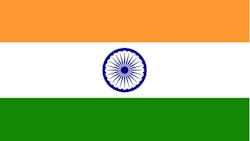India's Trade Practices 'Discriminatory and Unfair,' US Businesses Charge
India should grow its economy but not through unfair trade practices that harm the U.S., a group of U.S. business associations claimed in announcing formation of the Alliance for Fair Trade with India (AFTI).
The alliance, headed by the National Association of Manufacturers, the U.S. Chamber of Commerce and a dozen other industry groups, says the government of India has “systematically discriminated against a wide range of U.S. innovative products and exports in order to benefit India’s business and industrial community at the expense of American jobs.”
NAM President and CEO Jay Timmons said "India's recent discriminatory and unfair actions" were harming American jobs and said his organization was committed to ensuring that India "abides by global trade rules to protect America's competitiveness."
India is engaging in a variety of practices such as raising tariffs, imposing local content requirements and revoking or denying patents and failing to respect global intellectual property standards “for no purpose other than to give domestic corporations in India an unfair advantage over manufacturers and workers here in the United States,” charged Linda Dempsey, NAM’s vice president for International Economic Affairs, at a press briefing today. She said several of its actions appear to violate rules of the World Trade Organization.
India is a “promising market” for U.S. exports, Dempsey noted, with a $1.8 trillion GDP and a rising middle class. From 1992-2012, India’s exports to the U.S. grew tenfold, to $38 billion. India is now the fourth largest trading partner of the U.S., with $60 billion in annual trade volume.
But Dempsey warned that India’s current practices would harm its economy by discouraging foreign investment and impede its efforts to “grow its manufacturing sector and promote innovation and sustainable development.”
Indian policies and recent judicial decisions regarding intellectual property rights, said Mark Elliot, executive vice president of the U.S. Chamber of Commerce’s Global Intellectual Property Center (GIPC), have cast “a daunting shadow over India’s otherwise promising business environment.”
Last December, the GIPC issued an international index designed to assess the intellectual property systems of 11 countries. Elliott noted that India “consistently ranked last behind Brazil, China and Russia on nearly every indicator.”
Elliot said India’s IP policies affected a wide range of U.S. industries, from motion pictures to telecommunications. For example, the rate of reported software piracy in 2010 in India was estimated to be 64%, with a commercial value of $1.4 billion.
The pharmaceutical industry has been hit by a series of patent violations, he said. In March 2012, an Indian agency granted a “compulsory license” for an Indian company to manufacture a generic version of Bayer’s Nexavar, a cancer drug, on the grounds that Nexavar was too expensive for Indian patients to afford. In another case, said Elliot, the Indian Supreme Court denied a patent to Novartis for Glivec, a leukemia drug, despite the fact that its patent was recognized in more than 40 other countries. While the costs of Western drugs are frequently cited by Indian officials as a rational for local production, Elliot said, Novartis distributed Glivec to 95% of leukemia patients for free and the drug was heavily subsidized for the remaining group.
High-Level Diplomacy Needed
AFTI is calling for the Obama Administration to engage in high-level diplomatic efforts to put an end to these practices. Their immediate focus is on the trip Secretary of State John Kerry is making to India later this month, which Dempsey called “a critical opportunity to take action.”
“AFTI members want a level playing field and a fair shake in India,” said Dempsey.
The business groups sent a letter to the White House on June 6 asking the government to immediately “initiate bilateral engagement at the highest levels and to coordinate closely with the European Union and other like-minded economies.” If that effort is not fruitful, the letter stated, “we ask the U.S. government to respond purposefully, using all available trade tools and diplomatic engagement.”
About the Author
Steve Minter
Steve Minter, Executive Editor
Focus: Leadership, Global Economy, Energy
Call: 216-931-9281
Follow on Twitter: @SgMinterIW
An award-winning editor, Executive Editor Steve Minter covers leadership, global economic and trade issues and energy, tackling subject matter ranging from CEO profiles and leadership theories to economic trends and energy policy. As well, he supervises content development for editorial products including the magazine, IndustryWeek.com, research and information products, and conferences.
Before joining the IW staff, Steve was publisher and editorial director of Penton Media’s EHS Today, where he was instrumental in the development of the Champions of Safety and America’s Safest Companies recognition programs.
Steve received his B.A. in English from Oberlin College. He is married and has two adult children.
